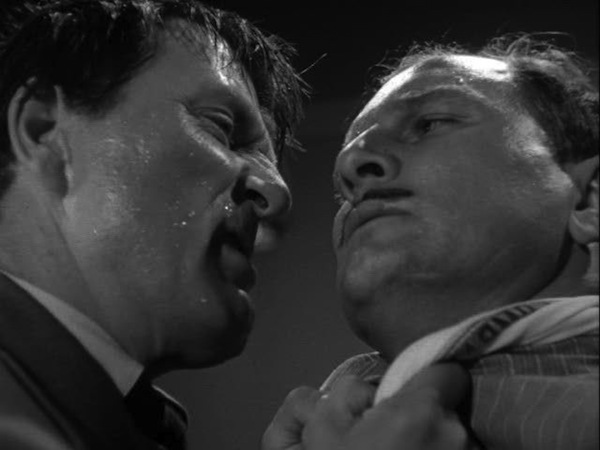Cheap, tough, and drenched in shadows, The Narrow Margin was the sort of thing that the RKO technicians could knock out in a couple of weeks with no trouble at all, but is raised by particularly tight direction from Richard Fleischer, including terrific use of confined spaces, windows, and yes, lots of shadows (but also, some nice harsh sunlight); and by lived-in performances from never-quite-made-it players, Charles McGraw and Marie Windsor.

Both tough as nails, but in a bitter, seen-it-all, disappointed way, they spit out the crackerjack dialogue (by Earl Felton, fresh off the double whammy of Jane Russell vehicles, The Las Vegas Story and His Kind of Woman), less with knowing relish than a weary sardonicism. He’s a cop and she’s a broad, widow of a mobster, being escorted cross-country to the DA in LA. There’s no love lost between them, but McGraw’s got other things on his mind, between the recent demise of his partner, the lurking gunman and his oily compadre also aboard the train, and the temptation to throw it all in. There’s also the demure young mother whom he meets repeatedly in the dining car, who may or may not be a welcome decoy.

This is not one of those noirs with strong echoes of the post-war malaise, the human condition, or the blurred lines between law and crime, although the second is implied and the third flirted with. There is some play with people not appearing what they seem, though more in the service of suspense than commentary. Instead, it is a taut exercise in wringing as much tension and excitement out of a simple set up, the cramped carriages, and the minuscule budget as possible. It is wholly successful, pitting the lone protector against the syndicate, backed up by a colorful supporting cast; incorporating a couple of effective twists; snappy, atmospheric; and full of exchanges like. “You make me sick to my stomach.” “Well use your own sink.”
